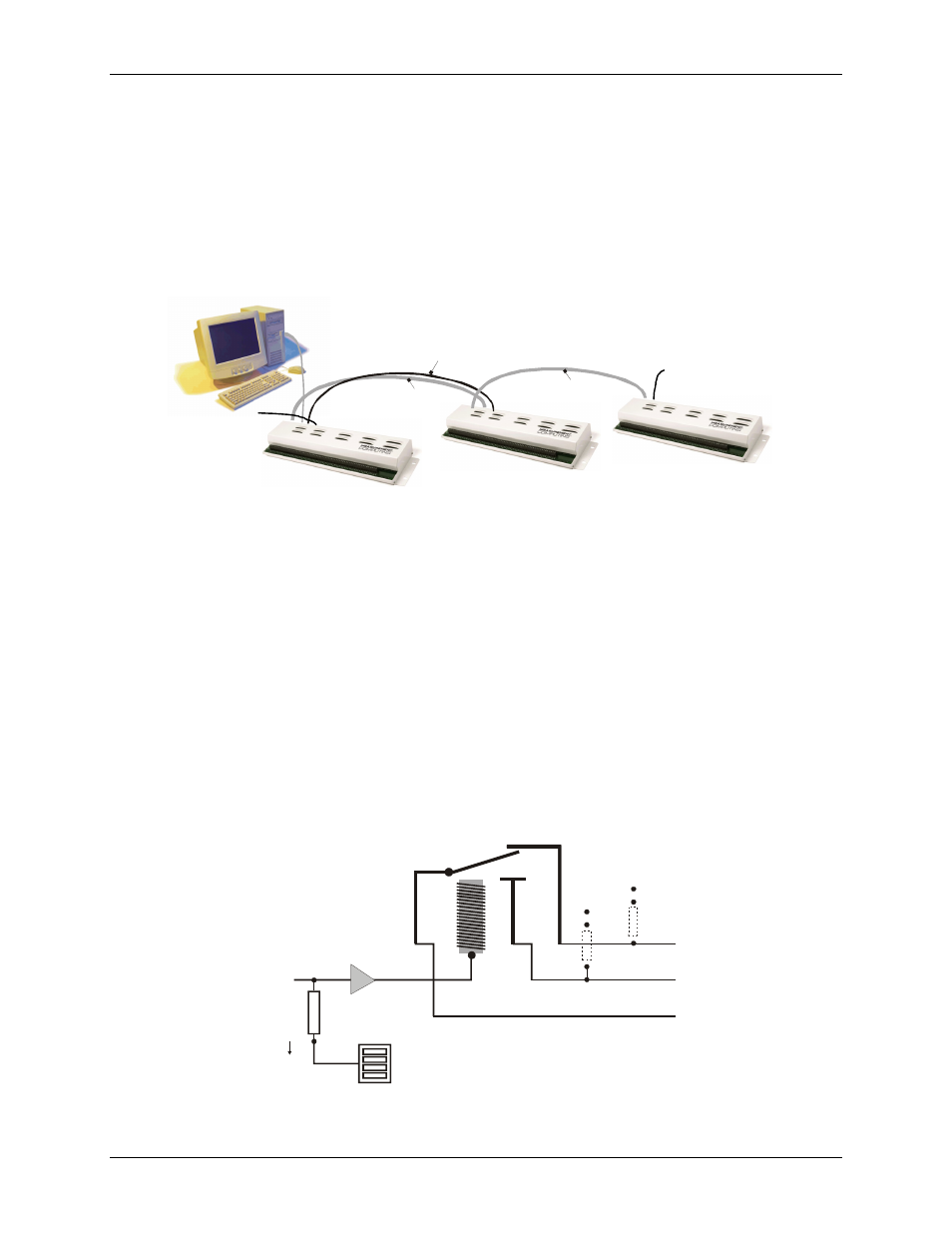Power limitations using multiple usb-erb24 devices, Voltage drop, Relay configuration – Measurement Computing USB-ERB24 User Manual
Page 18: Voltage drop -4, Relay configuration -4

USB-ERB24 User's Guide
Functional Details
1.
2.
3.
Connect the
POWER OUT
connector on the connected module to the
POWER IN
connector on the new
module.
This step is required only if you plan to daisy chain power to another module.
Connect the
USB OUT
connector on the connected module to the
USB IN
connector on the new module.
To add another module, repeat steps 1-2, with the module you just connected now being the connected
module.
A daisy chain example is shown in
. Note that the last board in the chain is supplied with external
power.
Figure 3-5. Daisy chain connections
USB port to
USB IN
USB OUT
to USB IN
USB OUT
to USB IN
CB
-
PWR
-
9V3A supply
to POWER IN
CB
-
PWR
-
9V3A supply
to
POWER IN
POWER OUT
to POWER IN
Power limitations using multiple USB-ERB24 devices
When daisy chaining additional MCC USB Series products to the USB-ERB24, you must ensure that you
provide adequate power to each board that you connect. The USB-ERB24 is powered with a 9 VDC nominal,
3.0 A external power supply.
Voltage drop
A drop in voltage occurs with each board connected in a daisy chain system. The voltage drop between the
power supply input and the daisy chain output is 0.5 V maximum. Factor in this voltage drop when you
configure a daisy chain system to ensure that at least 6.0 VDC is provided to the last board in the chain.
Relay configuration
You can install a pull-up or pull-down resistor at the NO and NC terminals on each relay. Note that the pull-up
resistors are tied to the 5 V power and should be considered when calculating the power budget. The relay
configuration is illustrated in the following schematic
User-installed
pull-up / pull-down resistor
GND
+5
Screw
terminals
(3 per
relay)
GND
+5
C
NO
NC
Digital output
from the user
Buffer/
driver
10 k
resistor
Pull-up/pull-down
switch S2
Figure 3-6. Relay configuration
3-4
